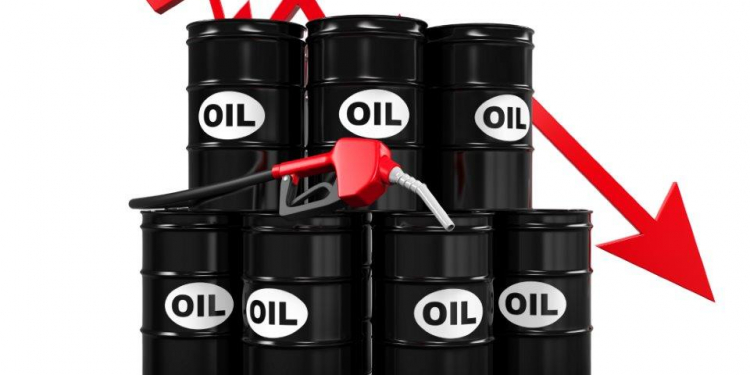The FINANCIAL — Oil prices plunged on Monday by around 30% as Russia on Friday refused to join the Organization of the Petroleum Exporting Countries [OPEC] in a large production cut. Because of that Saudi Arabia launched an aggressive price war. Brent crude futures fell by as much as $14.25, or 31.5%, to $31.02 a barrel. Saudi Arabia will raise production and offer its crude at deep discounts to win new customers next month.
Oil fell by the most since 1991 on Monday after Saudi Arabia started a price war with Russia by slashing its selling prices and pledging to unleash its pent-up supply onto a market reeling from falling demand because of the coronavirus outbreak. Brent crude futures fell by as much as $14.25, or 31.5%, to $31.02 a barrel. That was the biggest percentage drop since Jan. 17, 1991, at the start of the first Gulf War and the lowest since Feb. 12, 2016. It was trading at $35.75 at 0114 GMT. Saudi Arabia, the world’s biggest oil exporter, is attempting to punish Russia, the world’s second-largest producer, for balking on Friday at production cuts proposed by the Organization of the Petroleum Exporting Countries (OPEC), Reuters reported.
Oil prices have tumbled since Friday, when Opec’s 14 members led by Saudi Arabia met with its allies Russia and other non-Opec members. They met to discuss how to respond to falling demand caused by the growing spread of the coronavirus. But the two sides failed to agree on measures to cut production by as much as 1.5 million barrels a day. With global oil production now far outpacing demand, oil analyst Martjin Rats of Morgan Stanley said Opec members are now expected to pump more oil to capture market share. “Given Opec countries now have very little incentive to restrain production, oil markets look sharply oversupplied,” Mr Rats said in a research note, BBC wrote.
Saudi Arabia will raise production and offer its crude at deep discounts to win new customers next month, according to two people familiar with the country’s oil policy. “The plunge in oil has led to complete capitulation in other markets this morning,” said Jim Reid, a strategist at Deutsche Bank. Big energy groups were under acute pressure. Shares in BP and Royal Dutch Shell lost about a fifth of their value in London trading. Smaller oil companies fell more sharply, with the UK’s Premier Oil collapsing in value by a half. European equities markets were pummelled: dozens of stocks took several minutes to begin trading with others not trading half an hour after the opening bell. One trader said many stocks were thrown into volatility auctions which are used to smooth out tumult in individual share prices, according to The Financial Times.
Russia’s disruption from a three-year alliance with Saudi Arabia may be temporary. The oil market has seen arguments like this before. In 2014, OPEC held off production cuts in order to hold onto market share in the face of a resurgent U.S. oil industry. That led to oil to tumble from over $100 a barrel to below $40 by 2015. This most recent plummet for oil adds another punch to what’s already been a brutal and dizzying couple weeks for financial markets worldwide. The U.S. stock market is down 12.2 percent since setting its record last month on worries about how much corporate profits will fall because of COVID-19. It’s set on Monday to mark the 11th anniversary of hitting bottom after the 2008 financial crisis, FOX News reported.
The Paris-based agency expects global oil demand to fall by 90,000bpd. Last year it predicted demand would grow by 825,000bpd in 2020. Fatih Birol, the IEA’s executive director, said: “The coronavirus crisis is affecting a wide range of energy markets – including coal, gas and renewables – but its impact on oil markets is particularly severe because it is stopping people and goods from moving around, dealing a heavy blow to demand for transport fuels.” Higher production and price cuts by Aramco are likely to push world prices down further, hurting countries that rely on oil exports for tax income and foreign exchange, especially in Africa, south-east Asia and South America. The world’s oil demand could contract by as much as 730,000 barrels a day in 2020 in a “worst case” scenario. If the virus is contained quickly around the world, global oil demand could grow by 480,000 barrels a day, according to The Guardian.

































Discussion about this post